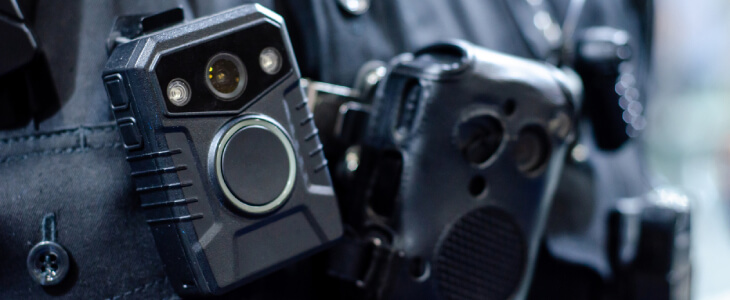In the heart of Chicago, where struggles against police misconduct are deeply felt, body cam footage has become crucial in ensuring those charged with protecting and serving do not overstep their mandate. If you think you’ve been a victim of police misconduct, bodycam footage may be a critical element in your civil rights case. However, the footage may not be your key to a successful case.
In this post, our Chicago civil rights attorneys guide you through some of the key elements of using bodycam footage in your police misconduct case.
Impact on Police Accountability
When it comes to dealing with the police, especially if you feel you’re being treated unfairly, body cam footage has the potential to hold officers more accountable for their actions. It’s like having an unbiased eye that sees everything just as it happens. This footage can make or break a case because it shows exactly what went down, separate from what anyone says happened.
In a lot of tough situations, especially in Chicago where things can get complicated, this kind of video can be the deciding factor. It helps get to the real story, cutting through all the talk. When bad behavior is caught on camera, it gives the truth a chance to come out. Body cams are helping to make things more honest and fair when you’re dealing with the police.
Body Cam Footage as Legal Evidence
Body cam footage, recorded by police officers during their duties, can often mean the difference between a successful or unsuccessful lawsuit involving allegations of police misconduct. This footage offers a less biased, first-hand perspective of the incident, potentially providing clear evidence of what truly happened.
To be admissible in court, the footage must meet specific legal standards of relevance and authenticity. Here’s what’s needed:
- Relevance: The footage must directly pertain to the case.
- Authenticity: It needs to be genuine, unedited, and trustworthy.
- Chain of Custody: Clear tracking from capture to court to prevent tampering.
These requirements ensure that the footage respects privacy rights and adheres to procedural norms, making it a powerful piece of evidence when these standards are met.
Challenges in Using Body Cam Footage
While body cam footage is invaluable, securing it is not without its obstacles:
- Accessibility: Often, there’s a maze of red tape to navigate for access.
- Inconclusive nature: Sometimes, the footage might miss key moments or provide a limited viewpoint.
- Integrity questions: Doubts about editing or chain of custody can undermine its effectiveness in court.
Because of these hurdles, it’s vital that you seek legal counsel if you wish to pursue a civil rights case against a police department.
Legal Process and Considerations
Securing body cam footage for legal proceedings in Chicago involves several critical steps. This process usually includes:
- Filing requests: Under public records laws or through legal discovery in a lawsuit.
- Legal scrutiny: Lawyers meticulously analyze the footage to ensure it aligns with the case’s narrative.
- Court admissibility: Ensuring the footage meets all legal standards to be used as evidence.
It is critical for lawyers to analyze the footage, to ensure it aligns with the narrative of your case and is legally admissible as evidence.
Do You Believe You Have Been the Victim of Police Misconduct?
Body cam footage has become an indispensable tool in the realm of police misconduct cases in Chicago. It aids in bringing clarity and accountability, offering a tangible piece of evidence in disputes that often rely heavily on personal accounts. For anyone considering legal action against a Chicago police department, partnering with a law firm experienced in handling body cam evidence, like Hale & Monico, is a critical step towards ensuring justice and upholding civil rights. For a free consultation and to learn how we can support you, reach out to our office.

